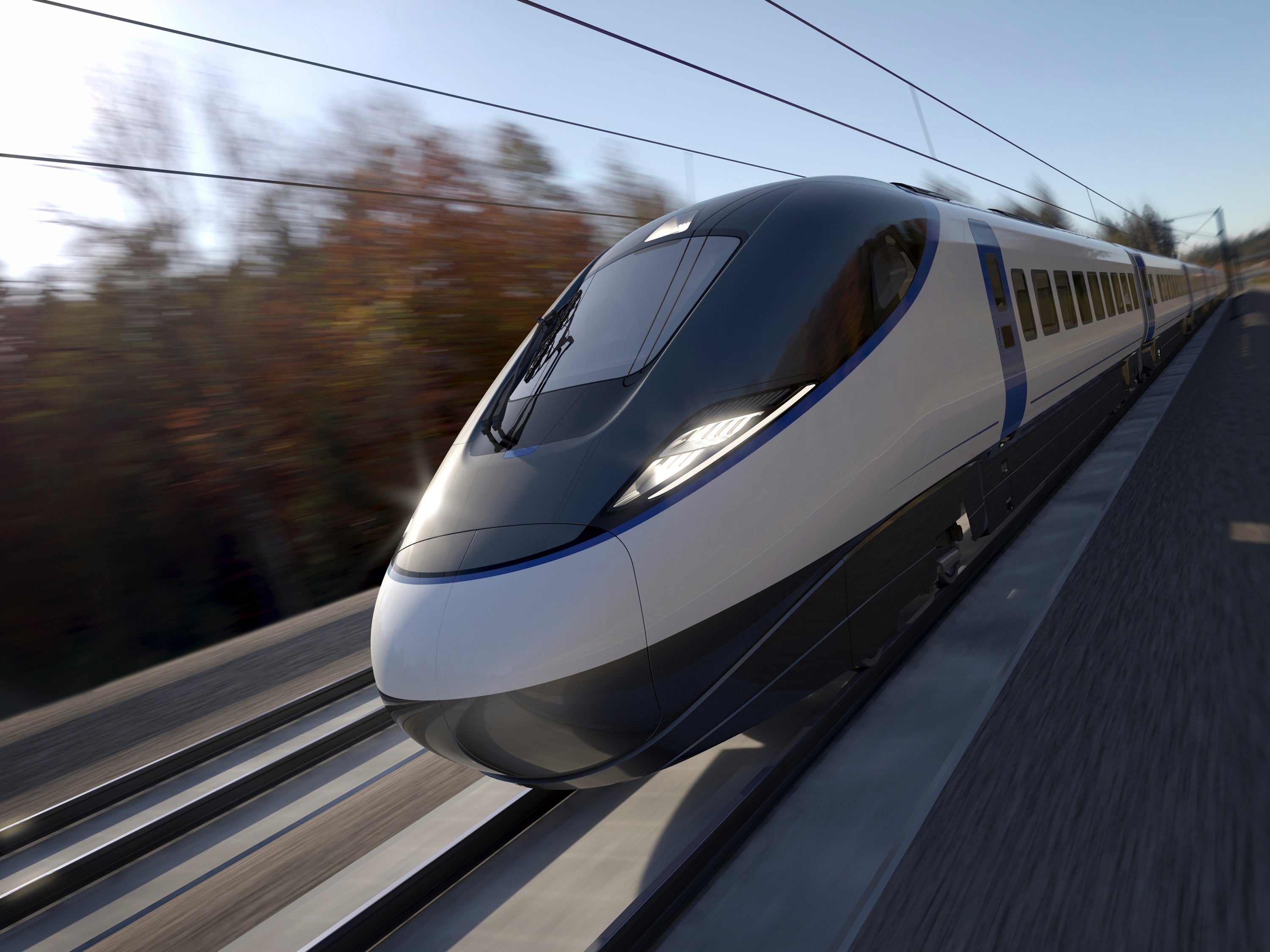Bill is ‘landmark moment’ for HS2 – Transport Secretary
The Bill to extend HS2 to Manchester will be laid in Parliament on Monday.

Your support helps us to tell the story
From reproductive rights to climate change to Big Tech, The Independent is on the ground when the story is developing. Whether it's investigating the financials of Elon Musk's pro-Trump PAC or producing our latest documentary, 'The A Word', which shines a light on the American women fighting for reproductive rights, we know how important it is to parse out the facts from the messaging.
At such a critical moment in US history, we need reporters on the ground. Your donation allows us to keep sending journalists to speak to both sides of the story.
The Independent is trusted by Americans across the entire political spectrum. And unlike many other quality news outlets, we choose not to lock Americans out of our reporting and analysis with paywalls. We believe quality journalism should be available to everyone, paid for by those who can afford it.
Your support makes all the difference.A “landmark moment” in improving the North West’s rail connections will happen on Monday when the Bill to extend HS2 to Manchester is laid in Parliament, Transport Secretary Grant Shapps said.
Phase 2b of the high-speed railway will cut travel times by around 55 minutes for journeys between London and Manchester, and up to 45 minutes for trips between Birmingham and Manchester, according to the Department for Transport (DfT).
It will also at least double capacity on those routes, the DfT said.
Make towns and cities in these key areas more attractive to business
Anti-HS2 activists are holding events along the railway’s planned route in Birmingham, Buckinghamshire, London and Manchester on Monday.
Extending HS2 from Crewe to Manchester was included in the Government’s £96 billion Integrated Rail Plan (IRP) published in November, although it has been part of the high-speed rail project since it was given the go-ahead by the coalition government in January 2012.
The IRP caused outrage among many northern leaders because it included the scrapping of HS2’s eastern leg between the East Midlands and Leeds, and a failure to use new lines for the full Northern Powerhouse Rail (NPR) project boosting east-west connections.
But the Government insists the IRP will result in similar benefits from previous plans, and they will be delivered quicker and with better value for taxpayers’ money.
Mr Shapps said: “We are determined to improve transport connections and level up communities across the country, and this Bill marks a landmark moment as we bring HS2 to Manchester and lay the foundations for Northern Powerhouse Rail.
“Our £96 billion investment in rail in the North and Midlands and in connecting them to London will bring communities together, create thousands of jobs, and make towns and cities in these key areas more attractive to business up to 10 years quicker than under any previous plans.”
HS2 Ltd chief executive Mark Thurston said the project has “an integral role to play in levelling up and rebalancing Britain’s economy”.
The extension to Manchester “fuels that role by bringing the country’s economic centres in the North and Midlands closer together”, he added.
The Bill will allow HS2 tracks to be installed and new stations and junctions to be built at Manchester Piccadilly and Manchester Airport.
The range of years for when Phase 2b is expected to be completed will be amended from 2035-2040 to 2035-2041 on Monday when the DfT publishes an updated business case.
This is following the recommendations of the Government-commissioned review by engineer Sir Douglas Oakervee.
The organisations Stop HS2 North and HS2 Rebellion will be joined by other groups and individuals on Monday to raise awareness of the environmental and financial impact of the railway.
A Stop HS2 North spokesperson claimed the Bill will sanction “immense and irreversible destruction to the environment”.
The spokesperson described the costs of HS2 as “out of control”.
The programme had a budget of £55.7 billion (at 2015 prices), but following cost increases and delays its funding was reset by the Government in 2020 to reflect a maximum estimated cost of £98 billion.
A review by HS2 opponent Lord Berkeley warned the project would cost more than £110 billion.
In October 2021 HS2 minister Andrew Stephenson said the project “remains within budget”.
No cost updates have been published by the Government since it downgraded plans for the eastern leg, which will reduce expenditure.
The Stop HS2 North spokesperson added: “Despite spending vast sums of public money on PR and greenwashing to try to promote HS2 as a green project, HS2’s own figures show that it will never be carbon neutral during its 120-year lifespan.”
HS2 Ltd said earlier this month the project is “supporting the Government’s 2050 target to tackle climate change”, and will achieve “net zero carbon from 2035”.